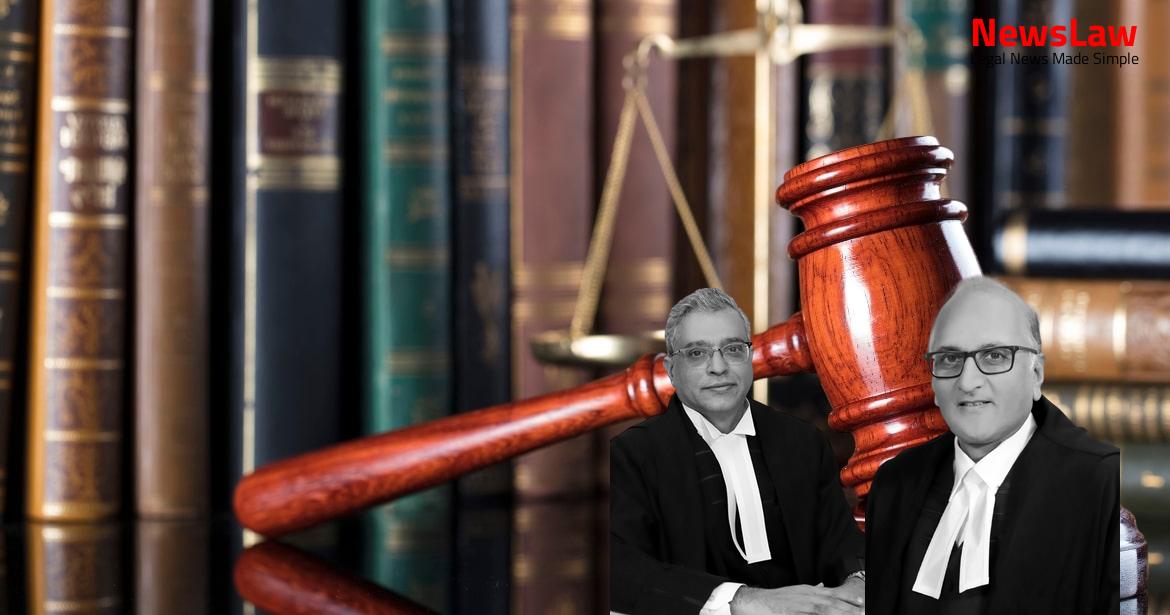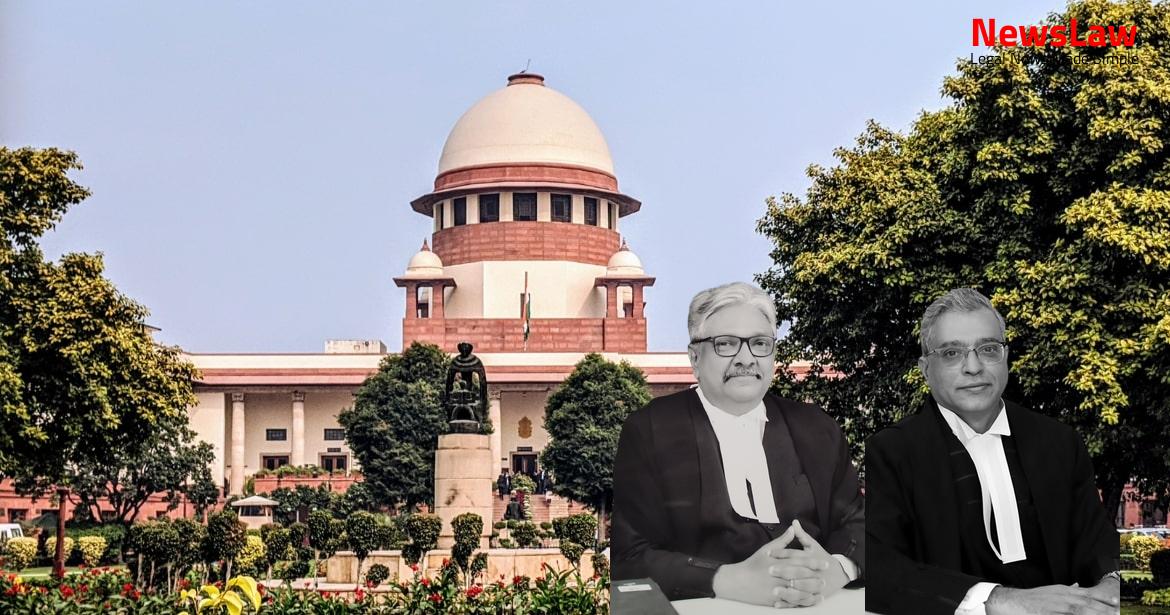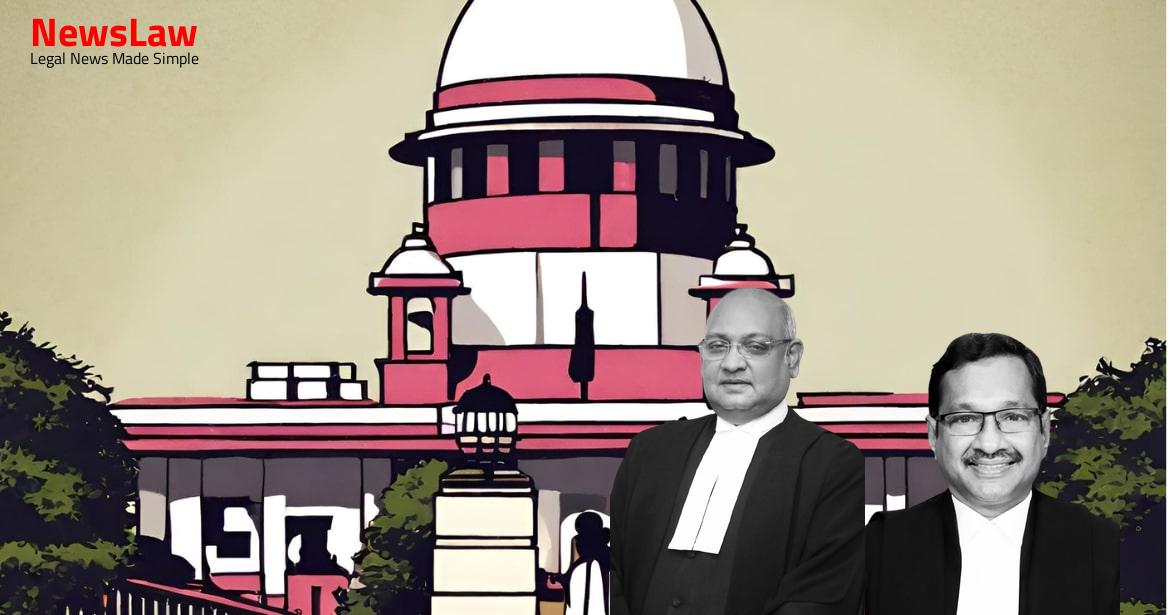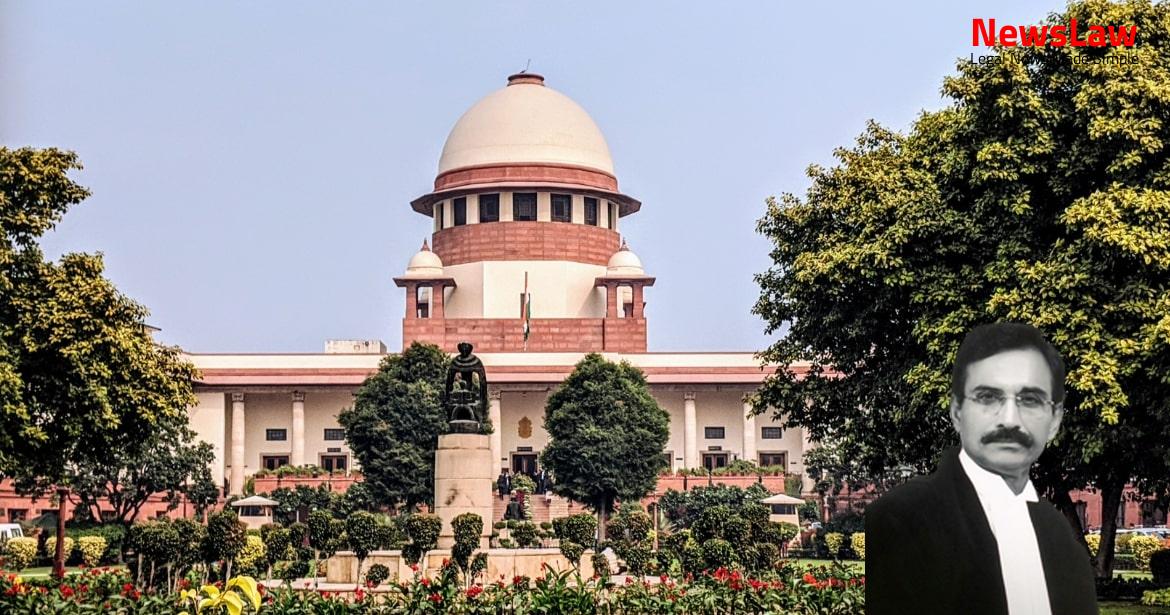The recent legal case has shed light on the crucial aspects of tax exemption for educational institutions. The court’s detailed legal analysis emphasized the necessity for institutions to primarily exist for educational purposes and not for profit in order to qualify for tax exemption as a charitable trust. This clarification on the interpretation of ‘solely for educational purposes and not for profit’ under Section 10(22) has significant implications for educational organizations seeking tax exemption. Stay informed with the details revealed in the court’s insightful legal analysis.
Arguments
- Existence and conditions imposed by tax authorities were deemed irrelevant while considering application for exemption under Section 10 (23C).
- IT Act was considered a complete code, and other acts could not be used to deny institutions approval for exemption.
- Importance placed on education being the sole purpose of institutions seeking exemption under Section 10 (23) (iiiab), (iiiad), and (vi).
- Emphasis on educational institutions primarily functioning for educational purposes and not for profit.
- The term ‘education’ was defined specifically in relation to mainstream curriculum-based education, not as a broad charitable purpose.
- Focus on the actual functioning of educational institutions rather than the presence of multiple charitable objects.
- Illustration provided on the activity of ‘occupation’ for livelihood or life mission in the context of educational institutions.
- Insistence that profit should not be a motivating factor for the functioning of trusts seeking tax exemption.
- Clarification that registration under A.P. Charities Act was not a prerequisite for approval under Section 10(23C) of the IT Act.
- Argument against linking provisions of the IT Act with other enactments for the purposes of granting tax exemption.
- From the inception of the IT Act until 31 March 2009, charitable purposes under Section 2(15) only included four activities.
- Income of entities identified as a charity was excluded from taxation under Section 10, and deductions were provided under Section 11 for income from property held for charitable purposes.
- From 1961 to 1975, income from education was excluded from taxation under Section 10(22) for educational institutions existing solely for educational purposes and not for profit.
- Amendments in 2009 and later in 2015 expanded the charitable activities to include preservation of watersheds, forests, wildlife, monuments, objects of artistic or historic interest, and yoga.
Also Read: Balancing Power and Transparency: Electoral Bonds Struck Down, Disclosure Mandated
Analysis
- The assessee-society cannot be deemed as solely a financing body and should be considered as an ‘other educational institution’ within the purview of section 10(22).
- The society should exclusively exist for educational purposes and not for profit to qualify for tax exemption as a charitable trust.
- The term ‘solely’ in the context of educational institutions means exclusively and not primarily.
- The mandate of the newly added words requires the institution to exist solely for educational purposes and not for commercial activities.
- The ‘predominant object’ test is crucial in determining the eligibility for tax exemption under Section 10(23C)(vi) of the IT Act.
- If the primary purpose of the trust or institution is charitable, other non-charitable objectives incidental or ancillary to the main charitable purpose do not disqualify it from being considered a valid charity.
- The High Court’s interpretation that ‘existing solely for educational purposes and not for purposes of profit’ applies only to trusts advancing general public utility and not to educational institutions is incorrect.
- The essence of ‘education’ for tax exemption purposes is formal schooling, training, and knowledge development of students.
- The nature of activities undertaken by the educational institution is paramount in determining its eligibility for tax exemption.
- The generation of surplus or profit incidentally from educational activities does not disqualify an institution from being considered as existing solely for educational purposes.
- The object and value of education are emphasized as tools for civil betterment, liberty protection, and informed citizenship.
- Registration under A.P. Act 30 of 1987 ensures state monitoring of educational agency activities.
- Accounts and audit of charitable institutions and hospitals are mandated under relevant sections.
- Definitions of ‘charitable institution’ and ‘charitable purpose’ are provided in A.P Charities Act.
- Non-registration does not exempt public charitable institutions from A.P. Act 30 of 1987 provisions.
- IT Act defines ‘charitable purpose’ and exempts certain incomes under Section 10.
- Provisions and provisos of Section 10(23C) specify conditions for income exemption.
- Existence of educational activity in India is crucial for tax exemptions under IT Act.
- Penalties and procedures for registration non-compliance are outlined in A.P. Charities Act.
- Analysis emphasizes the educational purpose of institutions for tax exemptions.
- Specific sections empower authorities to oversee registration and compliance of charitable organizations.
- The provision of Section 10(23C)(vi) was analysed with the insertion of various provisos to ensure compliance and prevent abuse of exemption.
- The first proviso requires the applicant to obtain initial approval from the Prescribed Authority (PA) by submitting an application in a standardized form.
- The second proviso empowers the PA to call for documents such as audited accounts to verify the genuineness of the applicant’s activities.
- The third proviso focuses on ensuring that the applicant applies its income exclusively to the objects for which it was established.
- The twelfth proviso guides the PA on cases where income is accumulated but used to pay other registered trusts or institutions.
- The thirteenth proviso outlines the circumstances under which the PA can withdraw approval if conditions are not met, such as non-application of income or non-compliance with approval conditions.
- The provisos collectively ensure a more stringent and monitored process for granting and revoking approvals under Section 10(23C)(vi).
- The court has departed from previous rulings regarding the meaning of the term ‘solely.’
- The decision aims to avoid disruption and provide affected institutions time to make necessary changes.
- It is deemed to be in the larger interests of society that the present judgment is upheld going forward.
Also Read: Recall of Resolution Plan Approval: Legal Analysis
Decision
- The appeals have been dismissed without order on costs.
- The law declared in the present judgment will operate prospectively.
Case Title: M/S NEW NOBLE EDUCATIONAL SOCIETY Vs. THE CHIEF COMMISSIONER OF INCOME TAX 1 (2022 INSC 1111)
Case Number: C.A. No.-003795-003795 / 2014



